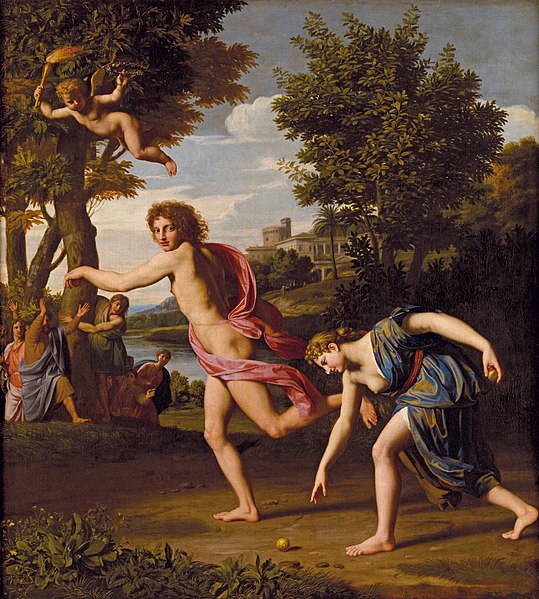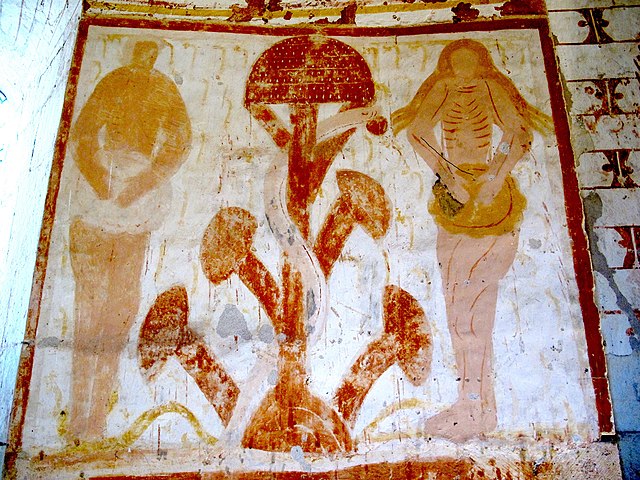Apples appear in many religious traditions, often as a mystical or forbidden fruit. One of the problems identifying apples in religion, mythology and folktales is that as late as the 17th century, the word "apple" was used as a generic term for all (foreign) fruit other than berries, but including nuts. This term may even have extended to plant galls, as they were thought to be of plant origin. For instance, when tomatoes were introduced into Europe, they were called "love apples". In one Old English work, cucumbers are called eorþæppla, just as in French, Dutch, Hebrew, Afrikaans, Persian and Swiss German as well as several other German dialects, the words for potatoes mean "earth-apples". In some languages, oranges are called "golden apples" or "Chinese apples". Datura is called "thorn-apple".
Venus Verticordia – Dante Gabriel Rossetti – 1866
Adam and Eve: a classic depiction of the biblical tale showcasing the apple as a symbol of sin. Albrecht Dürer, 1507; oil on panel.
Francisco de Zurbarán - A Virgem da Maçã, 1660-64
Atalanta and Hippomenes by Nicolas Colombel
In Jewish mythology, forbidden fruit is a name given to the fruit growing in the Garden of Eden which God commands mankind not to eat. In the biblical story, Adam and Eve eat the fruit from the tree of the knowledge of good and evil and are exiled from Eden:And the Lord God commanded the man, saying, Of every tree of the garden thou mayest freely eat:But of the tree of the knowledge of good and evil, thou shalt not eat of it: for in the day that thou eatest thereof thou shalt surely die.
Depiction of the original sin by Jan Brueghel de Oude and Peter Paul Rubens
Image: Plaincourault fresco, Garden of Eden






